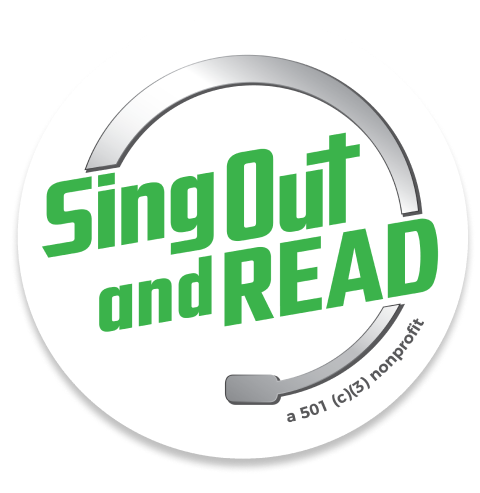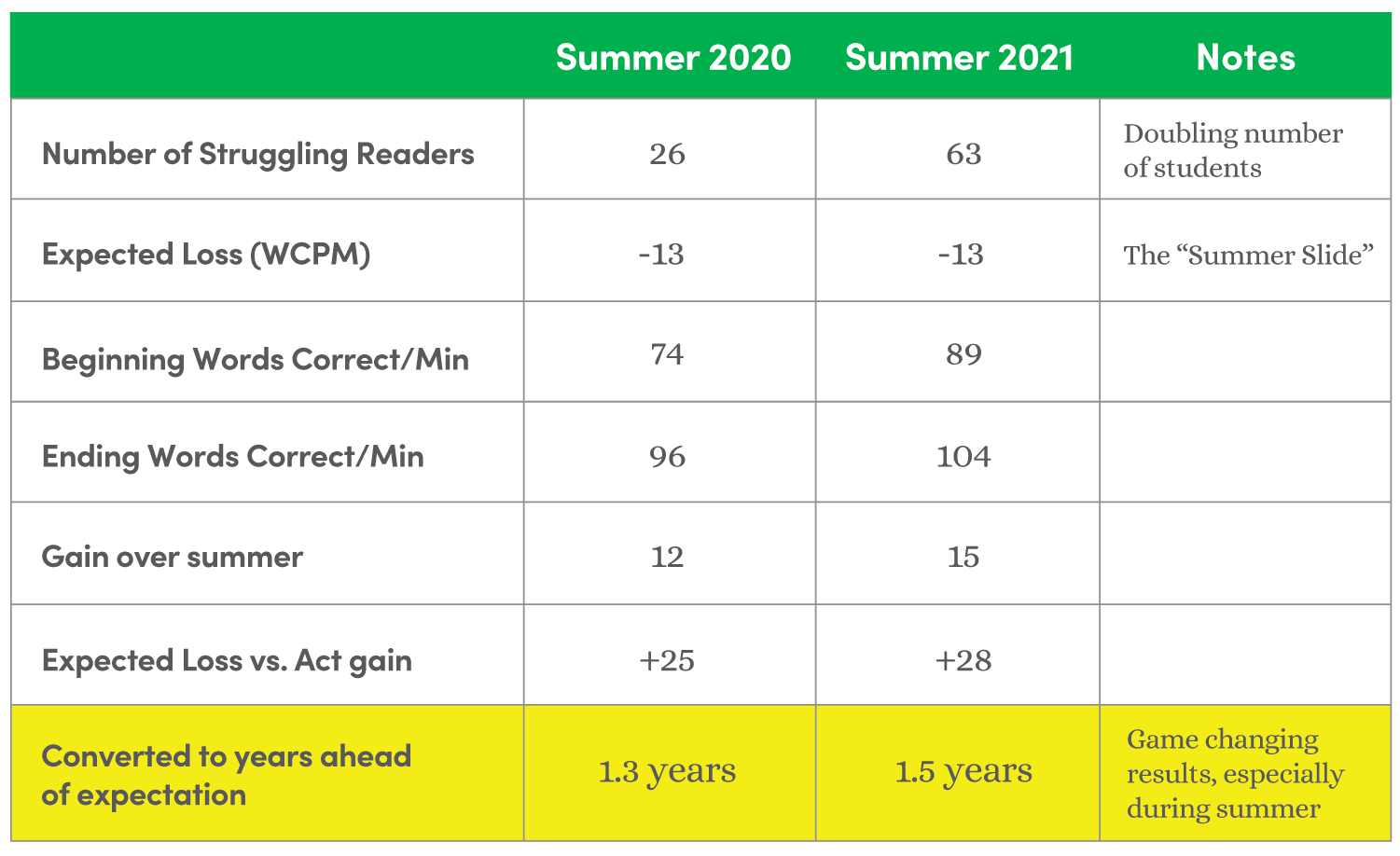Erasing the Summer Slide
Evidence shows that the Family Literacy Project (FLiP) helps at-risk, struggling readers avoid the “Summer Slide” and return to school, in the Fall, one full year ahead of expectations!Some of the 63 students who earned a prize tablet during the summer of 2021.
During the summer of 2020, struggling readers in Vero Beach, FL successfully used Sing Out and READ’s Family Literacy Program (FLiP) to turn the expected, six-month loss in reading level into a dramatic six-month gain. That is the equivalent of these struggling readers being one full year ahead of expectations.
In 2021, a different and much larger group of struggling readers duplicated this experience and in fact, gained even more in their reading levels than the children from the first summer!
Powerful Collaboration with The Learning Alliance of Vero Beach
Summer 2021 was the second year of SOAR’s collaboration with leading, literacy non-profit, The Learning Alliance. Program Manager for summer and after-school programs, Liz Bahl, shared the exciting news in early 2021 that they would be doubling the size of the implementation from the first summer (summer 2020). In addition to the larger implementation, Liz wanted to see if the same results could be achieved in six separate schools as opposed to the one school. This would be an excellent test of the “scale-up” potential for FLiP since replicating outstanding results when moving to different schools is never a certainty.
The numbers in the table below recap the key statistics from both summers, ’20 and ’21. In both cases, the students were rising 3rd graders, meaning that at the beginning of the summer, they had finished 2nd grade and were being promoted to 3rd grade in the Fall.
The number of participants more than doubled from the first summer to the second one. The Oral Reading Fluency assessment was administered by teachers at the beginning and end of the summer. The expected loss of in words correct per minute (WCPM) is one way of measuring the “Summer Slide.” The magnitude of this loss (-13 WCPM) is equivalent to a loss of 6 months in reading level.
Note: The assessment tool used was the “Oral Reading Fluency” or “ORF” as developed for the “DIBELS” reading assessment system at the University of Oregon by numerous faculty including Dr. J. Hasbrouck and Dr. G. Tindal. For a Norms chart of ORF, see below.
FLiP “prize” tablets are earned by participants, thereby recognizing hard work AND helping close the digital divide! This student earned the 10” tablet (the largest one) as she logged triple the recommended minutes on the program!
Feedback from Parents of FLiP Participants
“Jeremiah really enjoyed the program. Thanks again for all you do.”
“It was great and made it like a game for my son to do, helped with his comprehension skills.”
“This program has helped my daughter improve on her reading skills. Thank you for making this great program available. Our coach Mrs. Hessberger was awesome on answering any questions we had and communicating with us.”
Measuring the “Summer Slide”
The “ORF” abbreviation is short for “Oral Reading Fluency.” Used as an assessment tool, the ORF scores of elementary school children have been shown over decades of research to accurately predict overall reading skills. The assessment is extremely time efficient as it typically takes a trained assessor just 5 - 10 minutes to assess one child’s ORF.
Although use of ORF scores has been recommended since the 1980’s in the field of early reading instruction, the Norms chart below has been updated very recently (2017). One of the advantages of using ORF scores and the ORF Norms chart, is that the Summer Slide is easy to see and quantify by comparing the expected Words Correct per Minute (WCPM) at the end of one school year to the WCPM (three months later) at the beginning of the next school year.
In the example below, at the end of their 2nd grade year, readers at the 25th percentile, can read 72 WCPM. But, by the beginning of 3rd grade, they are down to just 59 WCPM. That’s a loss of 13 WCPM. This is one way to explicitly measure what is frequently called the “Summer Slide”.




